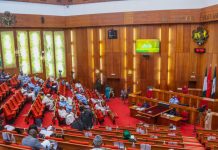FG Approves Menstrual Health Policy
The Federal Government has approved Nigeria’s first-ever National Policy on Menstrual Health and Hygiene Management (MHHM), a landmark move aimed at breaking barriers that periods place on the lives of women and girls.
The policy was validated during a high-level meeting in Abuja, with officials describing it as a crucial milestone in advancing gender equality and improving public health.
Nigeria, with one of Africa’s largest female populations, counts tens of millions of women and girls who manage their periods monthly. Yet, many face challenges such as poor access to sanitary products, lack of clean facilities, and social stigma.
Minister of Women Affairs, Imaan Sulaiman-Ibrahim, stressed the urgency of the policy, citing reports that poor menstrual hygiene has contributed to health complications such as anemia and absenteeism in schools.
“This policy is not only about access to sanitary pads. It is about dignity, education, and equality. By 2030, no girl should have to choose between her period and her future,” she said.
Policy Highlights
The MHHM policy is designed to:
End the stigma and silence surrounding menstruation.
Ensure universal access to safe and affordable menstrual products.
Integrate menstrual health into health, education, water, and sanitation development plans.
Guarantee that women and girls can pursue education and careers without disruption from menstrual challenges.
Global and Local Support
Development partners, including Population Services International (PSI) Nigeria and WaterAid Nigeria, welcomed the policy, pledging technical and financial support for its implementation.
They emphasized that the next step is turning policy into action, ensuring that every Nigerian woman and girl can manage menstruation with dignity and without shame.
Analysts have described the policy as a “new dawn” that could set a precedent for other African countries, where menstrual health remains an under-addressed barrier to equality and national development.




























